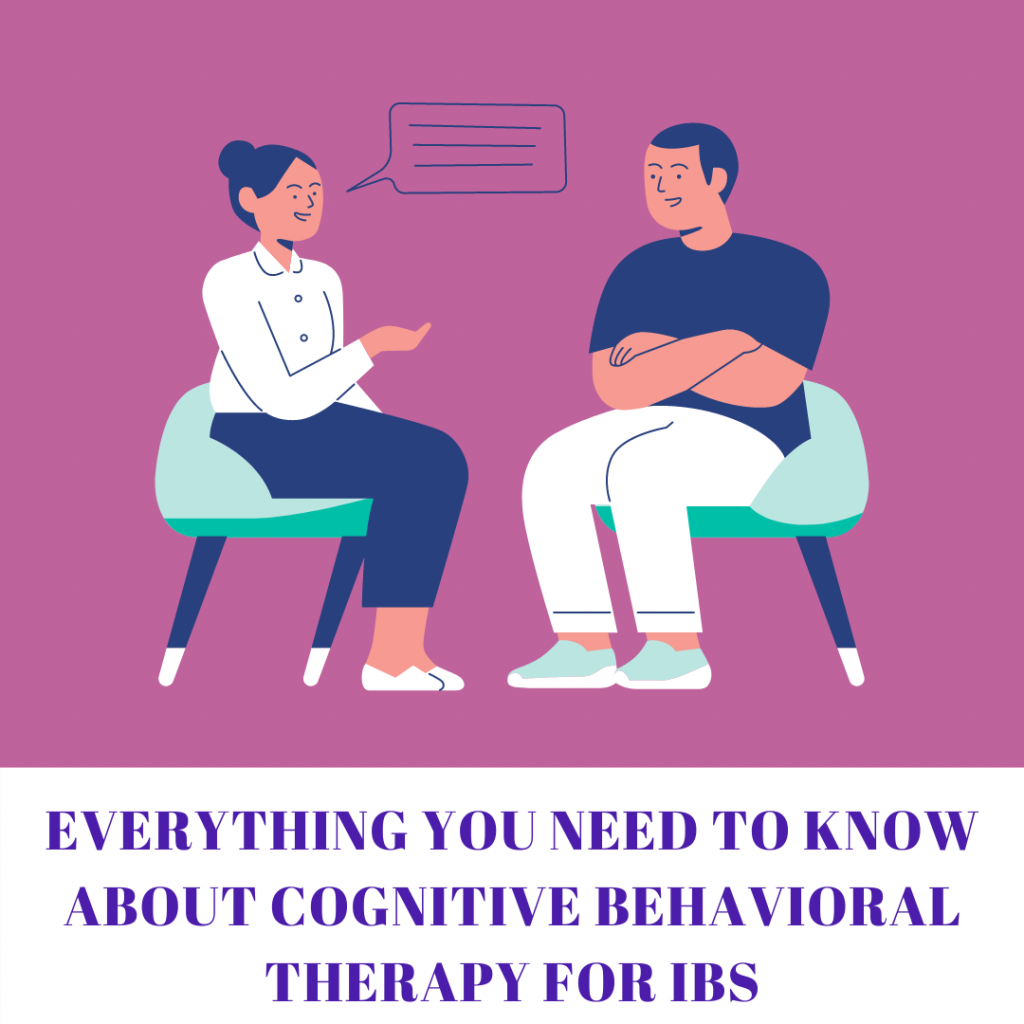25 Apr Cognitive Behavioral Therapy for IBS
April is Irritable Bowel Syndrome (IBS) Awareness Month:

Cognitive Behavioral Therapy for IBS
People who suffer with IBS have a problem with the way their central nervous system (the brain and spinal cord) and the enteric nervous system (the millions of nerves in the gut) communicate information back and forth about digestion, appetite, thoughts, and emotions.
Brain-gut Axis:
The pathway between the brain and the gut is called the brain-gut axis.
The brain-gut axis relies on chemical messengers, including serotonin, for communication.
Levels of serotonin impact our mood, sleep, and appetite.
95% of our body’s serotonin is found in our gut!
Our emotional state is closely linked to the proper functioning of our gut. In other words, the functioning of our gut affects our emotions, and our emotions affect the functioning of our gut.
People with IBS are more likely than people without IBS to have anxiety. However, even for people with IBS who do not meet the criteria for an anxiety disorder, fears, and worries that are related directly to their symptoms, known as symptom-specific anxiety, can contribute greatly to the severity of their IBS.
Cognitive Behavioral Therapy (CBT):
CBT can be a helpful tool to decrease IBS symptoms and improve your overall quality of life.
CBT is grounded in the belief that our thoughts (cognitions), feelings, and behaviors are all related.
By evaluating and modifying our thoughts and behaviors to make them more helpful, we can improve our emotional state.
Research has shown CBT to be effective in improving bowel symptoms, psychological distress, and quality of life. Clinical data shows that if three people with IBS are treated with CBT, one will clinically improve. This statistic is better than what is seen in several of the most effective IBS medications.
The first step in learning about CBT is to make an appointment with a psychologist specializing in CBT. Patients typically require four to ten CBT sessions.
Picture ideas below: